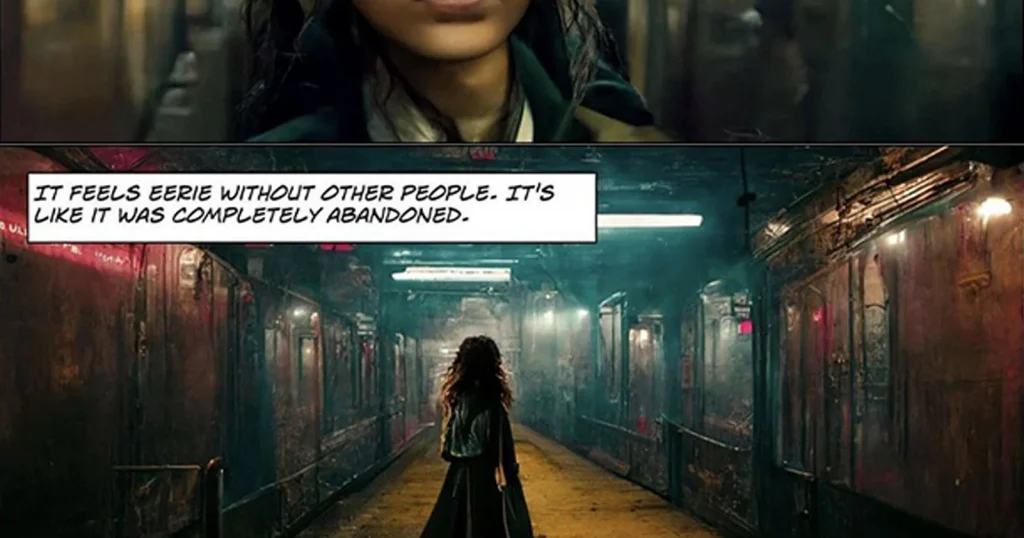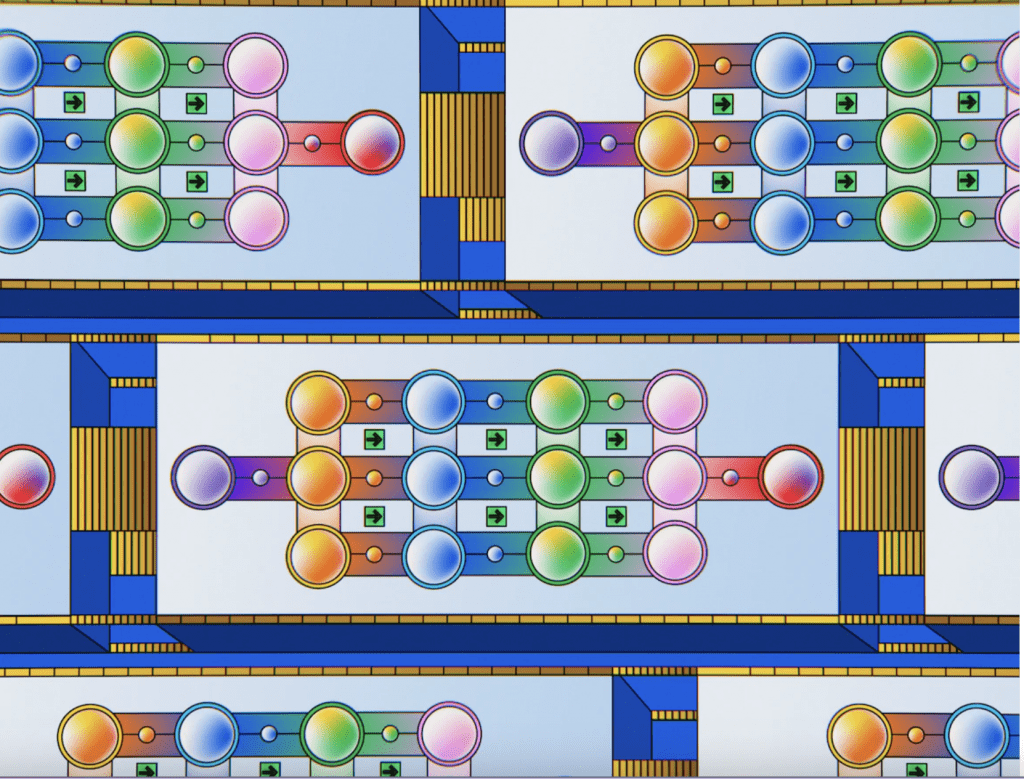The U.S. Copyright Office may be backtracking on a copyright registration that it issued last year to Kristina Kashtanova for a graphic novel that she made using artificial intelligence software Midjourney. Reports of a cancellation, which have since been shot down by the Copyright Office, follow from a back-and-forth between Kashtanova and Copyright Office, which – in the wake of registering the “Zarya of the Dawn” novel in September 2022 – sought clarification from Kashtanova about her use of image-generating AI software. The Copyright Office’s still-ongoing probe was seemingly spurred by widespread media attention to the fact that while Kashtanova wrote the text of the book, she used Midjourney to create the images, which was not disclosed in the copyright application.
As part of the notice that the U.S. Copyright Office (“USCO”) sent to Kashtanova back in September 2022, shortly after registering the Zarya novel, it asked her “to provide details ‘to show that there was substantial human involvement in the process of creation of this graphic novel,’” attorney Franklin Graves wrote this week. The level of human – versus AI – involvement is significant, as copyright registrations in the U.S. have been reserved for works of human authorship. Against this background, the USCO can cancel a registration if the authorship is insufficiently creative and/or if the work does not meet the established authorship requirements – and thus, is deemed to be invalid under applicable law and regulations, namely, 37 C.F.R. S. 201.7(c).
A spokesman for the USCO told TFL on Wednesday that it has “not issued a decision in this matter, and it remains ongoing.” Yet, the potential for cancellation of Kashtanova’s registration might not be entirely surprising in light of the outcome of previous matters centering on AI-generated works in both the patent and copyright spaces. For instance, Stephen Thaler, the creator of the AI platform, DABUS (an acronym for Device for the Autonomous Bootstrapping of Unified Sentience), previously applied for patent protection for a DABUS-created invention only to be shut down – ultimately by the Federal Circuit – on the grounds that an inventor must be an individual.

More relevant for Kashtanova: Thaler also sought to register an artwork created by DABUS, which the USCO refused to register in 2019 on the basis that DABUS lacks the “human authorship necessary to support a copyright claim.” That determination was upheld in subsequent reconsiderations, and Thaler has since sued the USCO in an attempt to get a U.S. federal district court to set aside the refusal from the USCO Review Board to register his AI-generated artwork, entitled, “A Recent Entrance to Paradise.”
More Questions
The outcome for Kashtanova’s registration, although not immediately clear, will likely provide some answers, particularly in terms of how much human involvement is enough to warrant a valid copyright registration. In a nod to the complexities at play when it comes to copyright and AI, Shira Perlmutter, register of copyrights and the USCO’S director, stated in an interview in December 2022 that “more difficult cases” (than Thaler’s) are likely to come up in the future, including those where there is “some level of human creativity.” In such a case, Perlmutter says that the question becomes whether the level of human creativity actually “rise[s] to the level of authorship under all the case law that has been developed over the years?”
That question has not yet been answered in the realm of AI, leaving the door open for courts, Congress, and/or the Copyright Office to provide clarity.
Given the current “pace of AI innovation and the Copyright Office’s focus on AI co-created works or works solely created by AI,” Davis Wright Tremaine’s Filipp Kofman, Barry Stulberg, and Stevin George stated in a recent note that “there is the possibility that proposed guidance emerges to address nascent questions,” such as “what level of creative input must exist for an AI-generated work to constitute human ‘authorship’ to support a copyright claim; and should AI-created works that are derived from analyzing existing works (such as those used for training data) or styles require a license from the original author to avoid a claim of copyright infringement, and to what extent do principles of fair use apply?”
Meanwhile, in light of the proliferation of open-source AI platforms” – such as Midjourney, as well as DALL-E and others – “that can generate an array of creative works, including visual art, poetry, and songs,” and the increasing number of AI-created works that are actually coming about as a result of the rising use of these services, Romano Law’s Marc Ostrow and Carlianna Dengel assert that “copyright law may need to be more flexible as to what AI-generated (or partially generated) works may be registered and by whom.”
* This article was updated to indicate that the Copyright Office has not cancelled Kashtanova’s registration. A spokesman for the Office revealed that a system error with its new public records system was responsible for Kashtanova’s registration being publicly listed as a “cancelled registration.“











